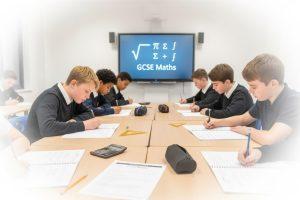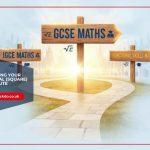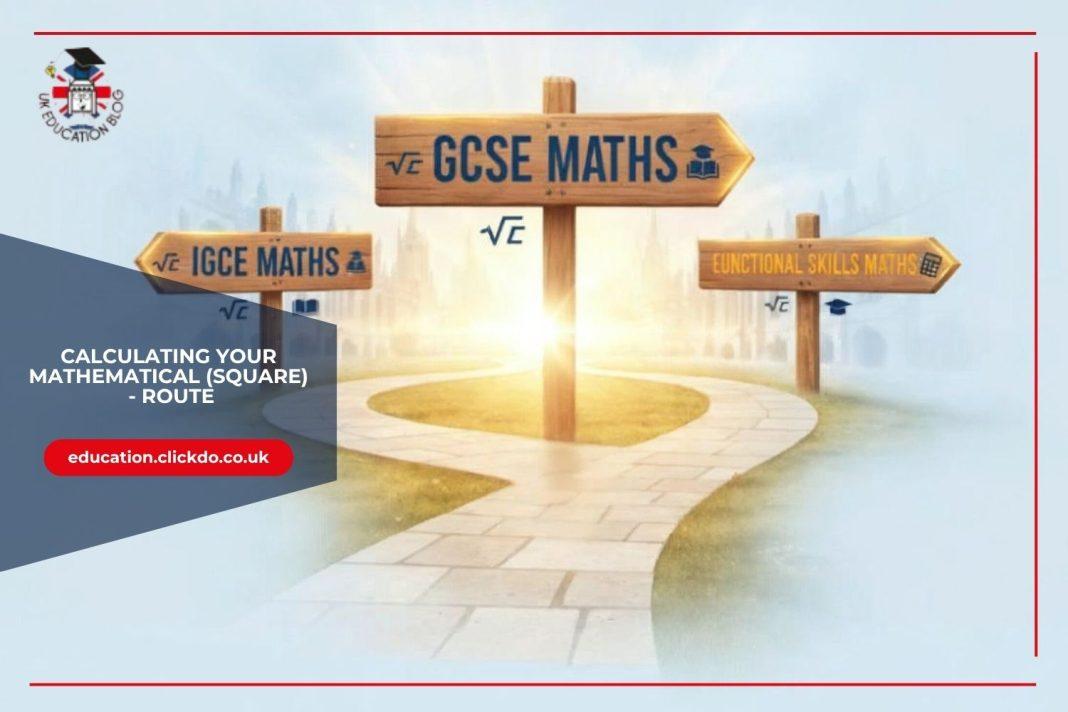Along with English, Mathematics has long been a cornerstone of education.
In the UK, whilst GCSE Maths remains the most familiar and traditional path, as it is taught to students at mainstream schools.
The International GCSE and Functional Skills options have both emerged as strong alternatives.
Whether you plan on studying at school, college, home education or as an adult learner, it helps to understand the similarities and differences between the three options, so you can make the best choice to achieve your goals.
All three will offer you a Level 2 qualification, which is needed if you choose to study at university, and most employers will also ask for a Level 2 qualification in both English and Maths.
GCSE Maths – The Classic Choice

Whilst many choose GCSE maths over Functional Skills, it may come as a surprise that many universities are happy to accept the lesser known alternative, viewing it as equal in benefits.
The traditional method for students in the UK is what is mainly offered in UK schools. The course is split between Foundation and Higher tiers, with the Foundation level covering grades 1-5, and the Higher tier allowing students to achieve up to grade 9. The syllabus includes algebra, geometry, statistics, ratios and number skills. Students will learn to apply their knowledge via problem-solving and reasoning questions.
To gain the GCSE Mathematics qualification, there are three written papers, one without a calculator, and two where calculators are allowed. There is no coursework, so the grade depends on these exams only.
Who it suits
GCSE Mathematics is for those students following the mainstream school system who wish to progress onto A Levels and then to university.
The qualification is recognised across the UK, and not only does it build on a broad range of Maths topics, but it also allows a solid foundation for further study.
Considering the course can be quite abstract and theoretical, some students may struggle with this; those who prefer practical learning, for instance, and the pressure on final exams may not suit everybody.
IGCSE Mathematics – The International Option

An increasingly popular option for a Level 2 Maths qualification would be the IGCSE. Initially introduced for students outside the UK, it has since grown in popularity and is now a solid option for both home-schooled and adult learners, as well as independent schools.
The structure of the IGCSE is like its UK counterpart. The content will still cover algebra, geometry and statistics, but often places more emphasis on understanding concepts rather than memorising the methods.
As with GCSE, there is no coursework and you are assessed via your final exams, in which there are two or three, depending on the exam board you choose to study with.
Who it suits
IGCSE Maths is well suited to international students, and those who study from home or learners that want a recognised qualification both in the UK and internationally.
The IGCSE Maths course is less tied to the UK curriculum and will be the same IGCSE maths course and content whether you study in the UK or France, Germany or Italy, so it has a lot more of an international feel.
The qualification is globally recognised by international schools, colleges universities and employers, and it has a simple assessment structure.
Functional Skills – The Practical Route
For some learners, Maths is an incredibly hard subject. Functional Skills offer a more practical way to gain a Level 2 qualification in Mathematics for learners in the UK.
Functional Skills Maths offers a more hands-on approach, focusing on problem-solving in everyday situations, from budgeting to measuring. The qualification is available at various levels, starting from Entry Level 1, and goes all the way to Level 2, which will be the equivalent of a GCSE grade.
The biggest advantage that Functional Skills courses have over GCSEs and IGCSEs is their flexibility. Exams can be taken throughout the year, so if you have a tight timeframe, it provides a good opportunity to gain a Level 2 qualification in weeks or months, rather than relying on the exam series in May/June and October/November.
Furthermore, the exams are available either at local exam centres around the UK or through online assessment, a huge benefit for some people who struggle with exam pressure.
The questions are often focused on realistic tasks such as calculating discounts, comparing prices, or measuring for materials.
Who it suits
Universities and employers recognise Functional Skills Maths as a Level 2 qualification, equivalent to GCSEs and IGCSEs. Functional Skills are aimed at adults, apprentices, and students who need a Maths qualification for work, college, or just to pop into their CV to show you have that box ticked.
Which Maths Qualification suits you?
The choice of which route suits you would depend on a few factors. If you are aiming for a university degree, GCSE or IGCSE Maths is usually the better option. Whilst for vocational or work-based courses, then Functional Skills is often sufficient. Furthermore, some people thrive in written exams that are required for GCSE and IGCSEs, while others prefer practical or flexible testing, which Functional Skills will suit. Then there is the timescale, if you need a rapid Level 2 qualification, then Functional skills will be the best option for you.
The End Result
At the end of the day, the best Maths route is the one that fits you — your goals, your learning style, and where you want to go next. All three paths lead to the same destination — a respected Level 2 qualification in Maths that can open doors to further study, better job opportunities, and greater confidence with numbers. It is often a good idea to consult with an advisor to ensure you are on the right path for you.
Author Profile

- Publishing the latest education, EdTech and career news.
Latest entries
 DictionaryNovember 13, 2025How to Get UCAS Points: Your Essential UK University & College Admissions Guide
DictionaryNovember 13, 2025How to Get UCAS Points: Your Essential UK University & College Admissions Guide educationNovember 7, 2025Calculating your Mathematical (Square) – Route
educationNovember 7, 2025Calculating your Mathematical (Square) – Route careerOctober 22, 2025UK University Entry Requirements & Routes for Mature Students
careerOctober 22, 2025UK University Entry Requirements & Routes for Mature Students DictionaryOctober 14, 2025What is the Ofsted Inspection Framework?
DictionaryOctober 14, 2025What is the Ofsted Inspection Framework?







